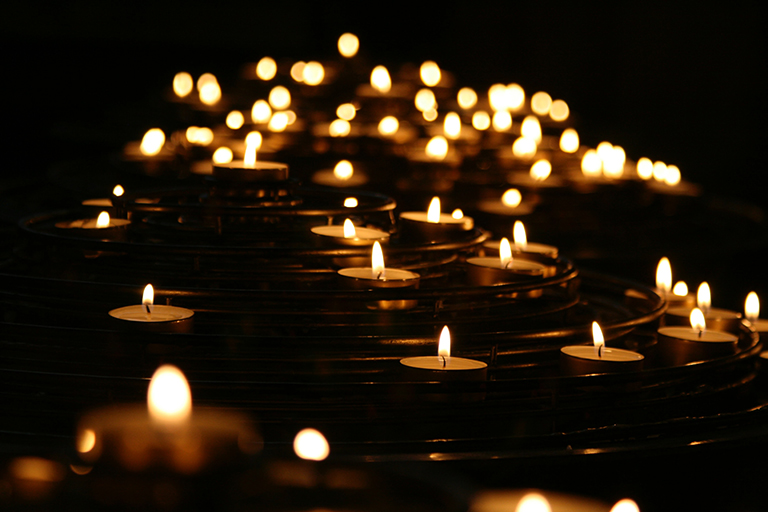
Lost a Loved One in West Virginia? Know Who Can File a Wrongful Death Lawsuit
Knowing who can file a wrongful death lawsuit in West Virginia is among the first steps in successfully getting compensation for the losses your family has suffered. These occurrences—for instance, resulting from medical malpractice, car accidents, or work-related accidents—could be prevented if the at-fault party had taken the necessary measures to prevent the death. While it’s your legal right to seek compensation for the death of a family member, it’s critical to know who is eligible to file a wrongful death lawsuit.
Wrongful death cases leave a trail of grieving families that continue suffering financially as the deaths rob them of parents, siblings, grandparents, and children who supported the surviving family members. On top of that, they are left with outstanding debts, medical and hospitalization bills, and funeral expenses to grapple with.
Fortunately, you can file a wrongful death claim and get the full compensatory amount to help you get back on your feet. But filing the claim during the grieving period is more than enough to bear. That’s why hiring a professional West Virginia wrongful death lawyer to take care of your wrongful death claim is a surefire means of starting the legal process and obtaining justice.
What Is Wrongful Death According to West Virginia Law?
In West Virginia, a wrongful death lawsuit is a civil court case that seeks to recoup the damages caused by another party’s negligence, wrongful act, negligence, or default that resulted in the death of another person. The law provides that the surviving family members can file a wrongful death claim in circumstances where if the decedent were alive, they would sue the blameful party because of their wrongful act.
Like other personal injury claims, wrongful death might arise from different events. Some situations that may lead to wrongful death include:
- Car accidents due to the negligence of another party
- Work-related accidents
- Medical malpractice, such as wrong prescriptions, premature discharging of a patient, and failure to perform standard medical tests
- Intentional and malicious acts like armed robbery
Who Can File a Wrongful Death Lawsuit?
Many states have personal injury laws that allow one of the surviving family members to file a wrongful death claim. Based on the circumstances, the spouse, an adult child, or the decedent’s parent may file the claim. However, West Virginia law takes a totally different approach. In West Virginia, only the deceased’s personal representative (also referred to as an estate administrator/executor appointed by the court) can file the wrongful death claim.
Nonetheless, the court can award the compensatory amount to the surviving spouse, children, siblings, parents, or another party who was financially dependent on the decedent. If the deceased individual had no surviving family member at the time of death, the court would be compelled to distribute the settlement amount according to the deceased person’s will.
Possible Damages Awarded in a West Virginia Wrongful Death Case
If you’ve filed a wrongful death claim, the state specifies the damages a wrongful death claimant is entitled to as the surviving family member or dependent. The settlement fee will cover:
- Loss of income
- Pain and suffering
- Loss of companionship
- Medical care, treatments, and hospitalization expenses
- Loss of care, love, and protection
- Funeral and burial expenses
Limitation on Recoveries
In your pursuit for compensation in a wrongful death claim, two factors may limit your recovery of the damages:
- The modified comparative fault standards
- The limit on noneconomic damages
In comparative fault standard, the West Virginia probate court will limit the recovery amount based on the deceased person’s own contribution or negligence leading to their demise. Here’s an example: A construction worker fails to adorn full personal protective equipment (PPE) as they enter the job site. Even if a crane operator negligently causes a heavy object to fall on them, the court will determine the degree to which they contributed to their own death, usually represented in a percentage.
The court might also place a cap on noneconomic damages in actions of professional malpractices, as with healthcare professionals. In such a case, the cap or maximum amount that the presiding judge can award is $500,000.
Noneconomic damages are challenging to calculate since they involve non-tangibles like pain, suffering, or sorrow. On the other hand, economic damages are easier to determine as they involve summing the financial losses based on medical bills and loss of income.
Partner With a Compassionate Wrongful Death Attorney—Get the Compensation You Deserve
At The Miley Legal Group, we understand how sorrowful losing a family member is. We want to alleviate the burden of handling the complicated legal process and let you focus on your emotional recovery. If you’re grieving the demise of a loved one because of another party’s wrongful act or negligence, contact us today or schedule a free consultation, and we’ll be ready to take your lawsuit to court if necessary.


